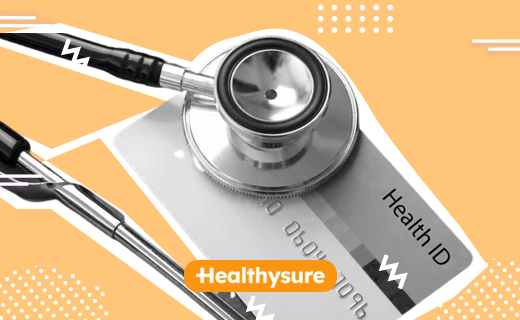The Ayushman Bharat Digital Mission was announced by Prime Minister Narendra Modi on 27th September 2021, promising revolutionary changes in the healthcare facilities of the nation. The spotlight of the mission is the issuance of a digital Health ID for every citizen, along with the introduction of a digital healthcare professionals and facilities registry. Read ahead to see how you too can be a just a click away from accessing healthcare facilities.
Table of Contents
What is a digital health ID?
Using a Health ID is the first step towards creating a safer and efficient digital health records for you and your family. A digital health ID is a randomly generated 14-digit number which is unique to every individual participating in the Ayushman Bharat Digital Mission. This identification number will be used for three purposes: identification, authentication, and threading of the beneficiary’s health records with participating healthcare providers and payers, with your consent.
Your digital health ID will be a repository of your entire medical history. It will contain the details of your medical tests, doctor appointments, medications, and diagnosis. These details can be viewed even on a mobile phone application and can be shared with any concerned healthcare entity only after your clear and informed consent. This permission can even be revoked in the future.
How can I get my digital health ID?
You can self-register for your digital health ID on the portal or by downloading the ABDM Health Records app on your mobile phone. You can also request the same at a participating health facility, such as govt or private hospitals, community health centers, and wellness centers of the government across India. The user will have to set up a Personal Health Records address for consent management and future sharing of health records.
ABDM supports health ID creation via mobile or Aadhaar. However, creation via PAN card and driving license is expected to roll out soon.
What is your Personal Health Records address and is it secure?
PHR is a self-declared username used to access your health records. It is extremely beneficial as it allows to link all of beneficiary’s health and medical records to create a longitudinal health history. In order to share your health records, you will be required to sign in to a Health Information Exchange and Consent Manager wherein each health ID will require linkage to a consent manager to enable sharing of health records data.
As declared by the NHA, ABDM does not store your health records. Rather, these records are stored with the healthcare information providers and are simply shared over the ABDM network with strong and secure encryption mechanisms.
Can I opt out of the ABDM?
Yes, both registration and deletion of health ID is voluntary. While exiting, two options are available to the user: temporarily deactivating your health ID or permanently deleting it.
On deleting your health ID, your entire medical history will be wiped off, along with the demographic details. You cannot recover any of the deleted data in the future and you will never be able to access ABDM applications or corresponding facilities with your deleted ID.
On the other hand, temporarily deactivating your health ID will allow you to reactivate it at any point of time. However, while it is deactivated, you can neither view your health records nor share it with anyone.
Why should I be a part of the Ayushman Bharat Digital Mission?
As claimed by the Prime Minister, this initiative has the potential to reform the entire healthcare system in the country by increasing the ease of living along with simplifying the procedures in hospitals. A few years back, Unified Payments Interface was launched, and it has been successful in revolutionizing payments. With a similar notion, the health ID will create interoperability within the health ecosystem of India.
For instance, consider a patient admitted to a hospital A who wants to move to another hospital in a different city. Now, if the hospital is in the centralized ecosystem, the patient is not required to carry the burden of physical records of treatments, medication, or diagnosis. Instead, the patient can relax and focus of recovering while the hospital fetches the readily available medical history with your consent.
The digital health ID is free of cost and voluntary. According to the government, higher number of registrations will be helpful to analyze the health data for better planning, budgeting and implementation of state’s health programs.
Get your digital health ID by registering here- https://healthid.ndhm.gov.in/register



